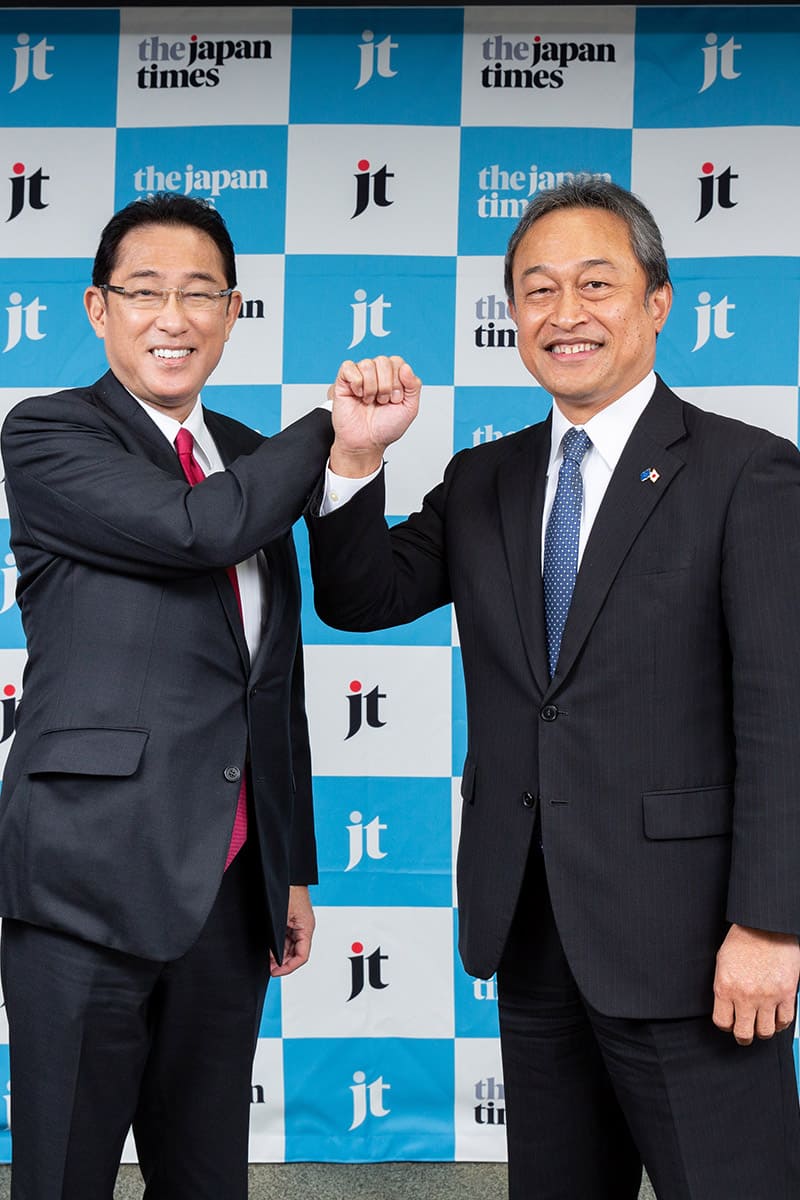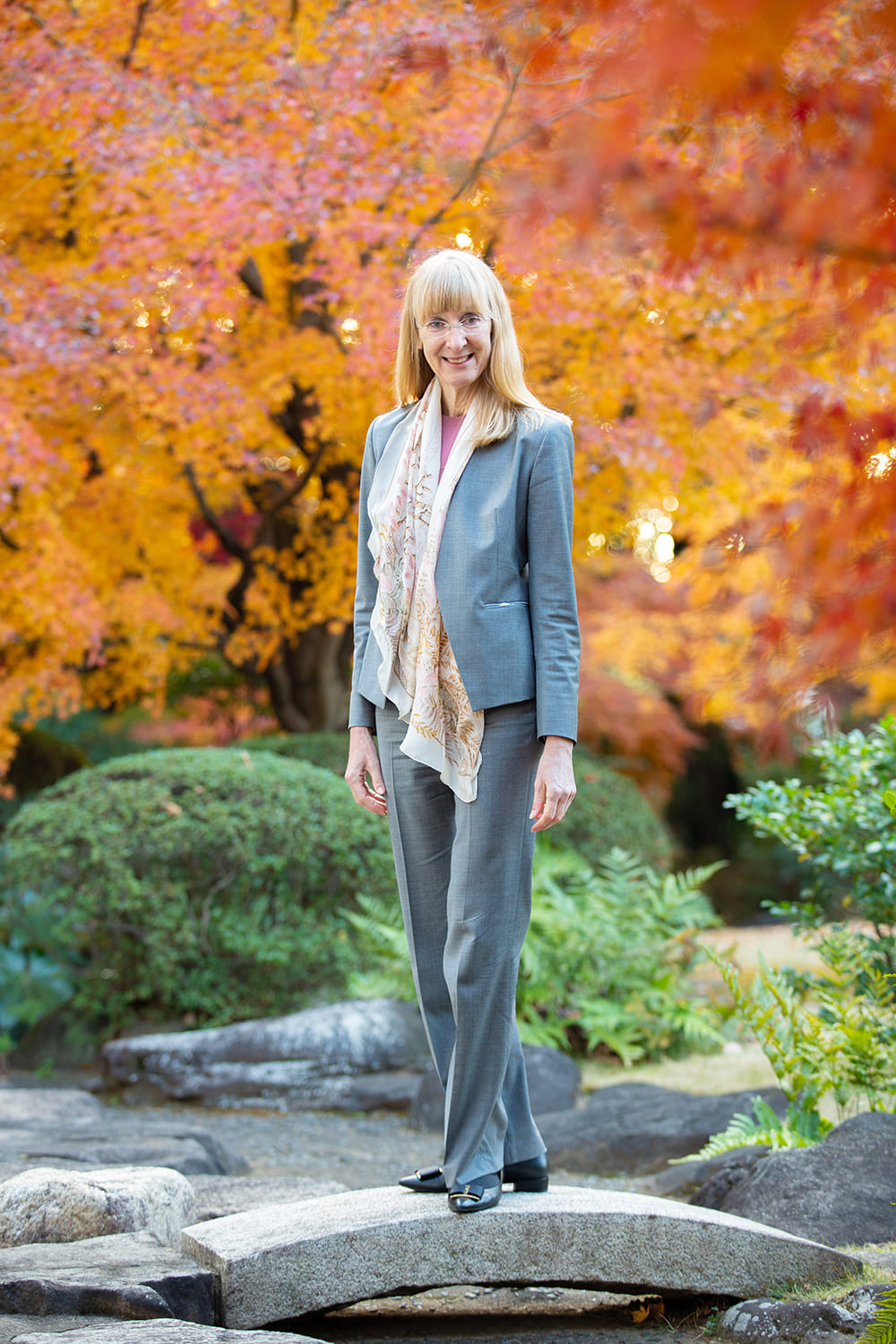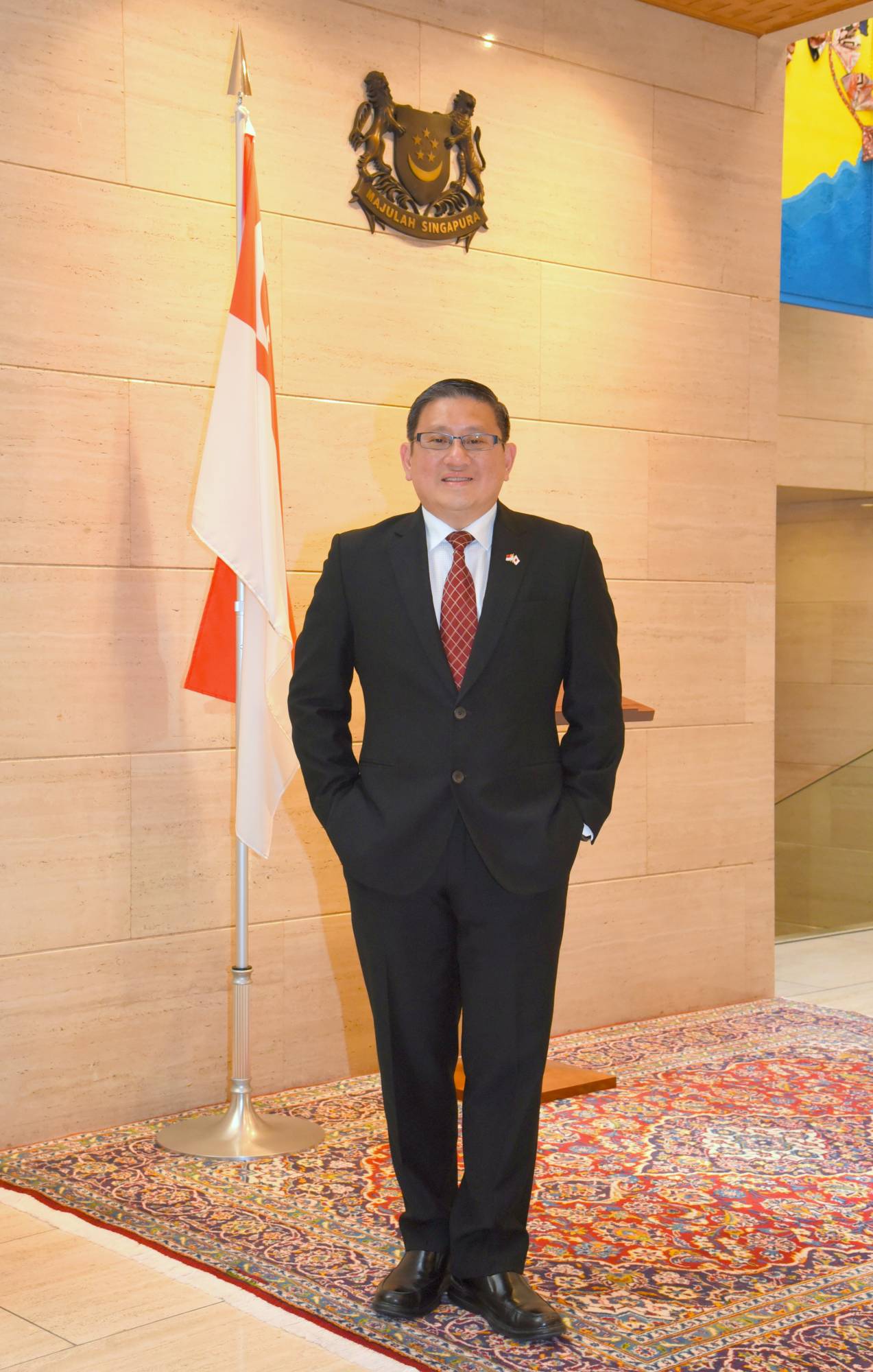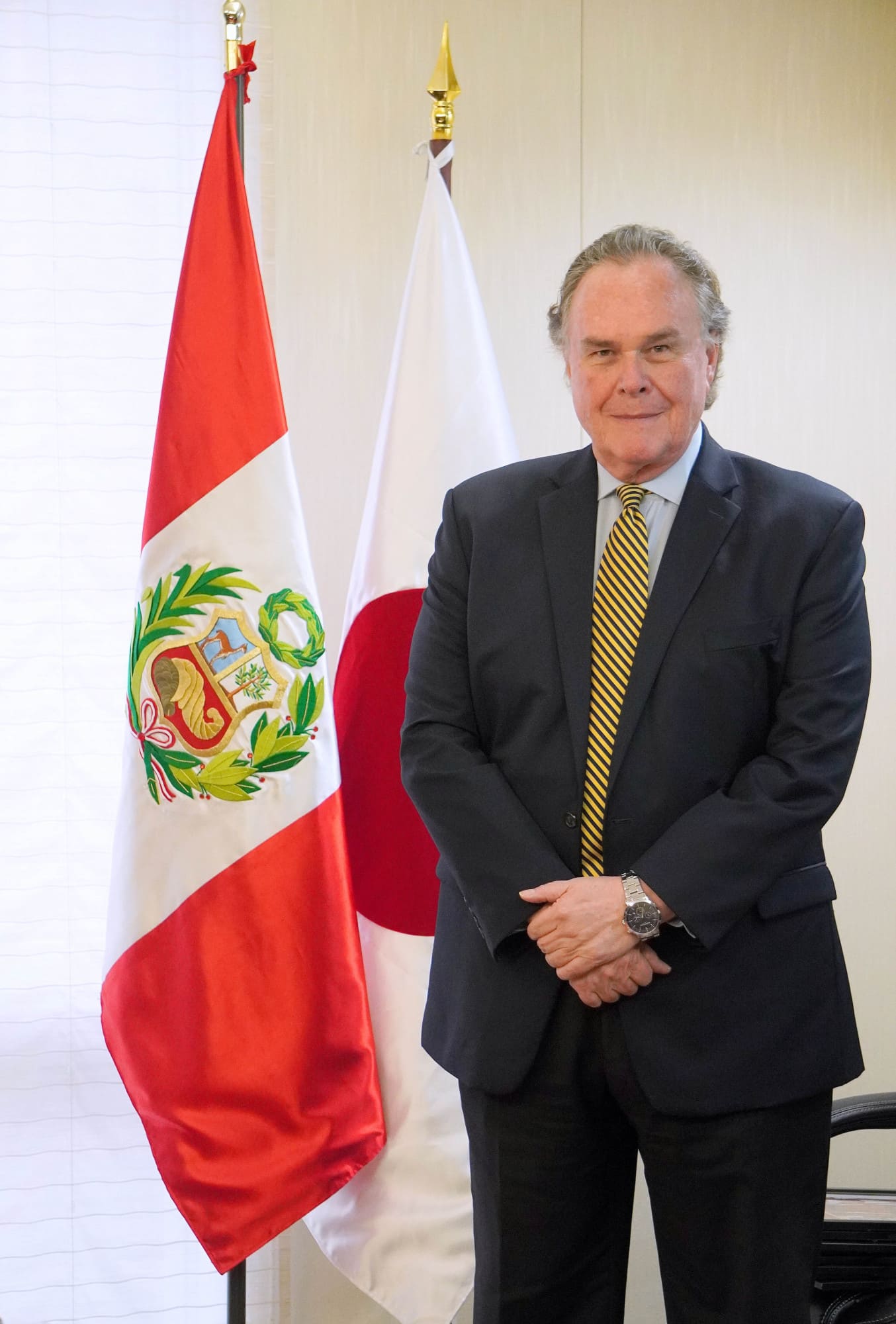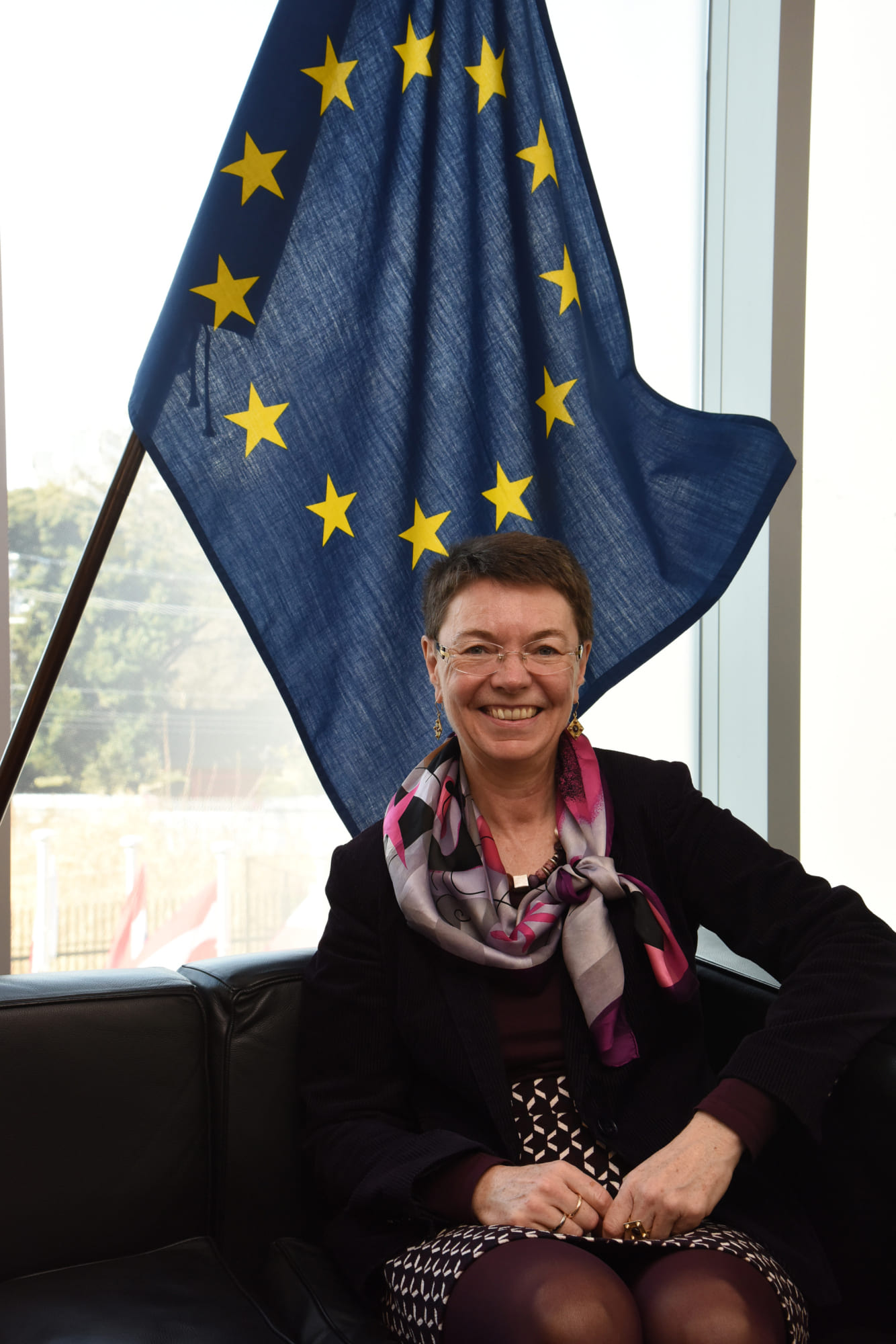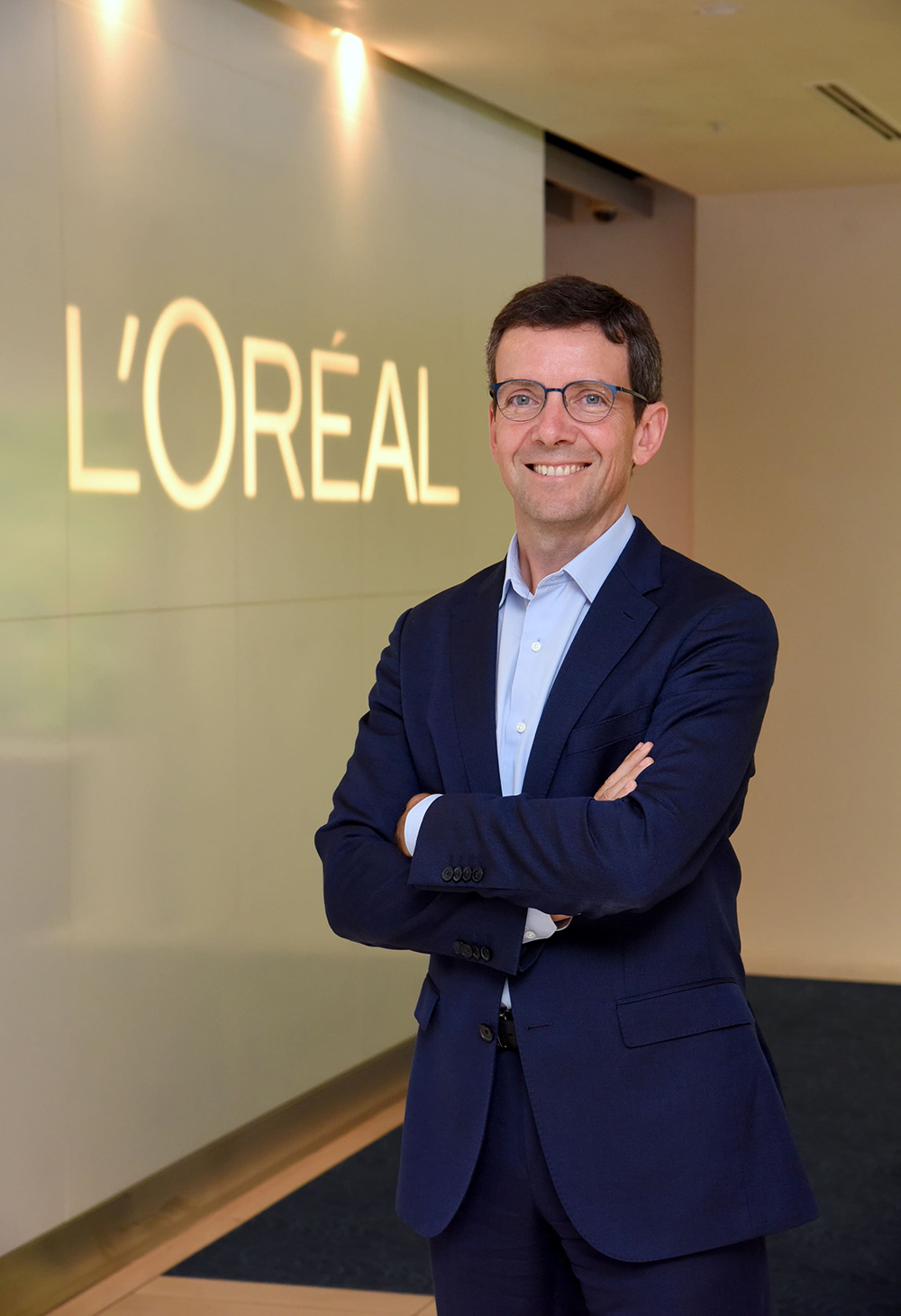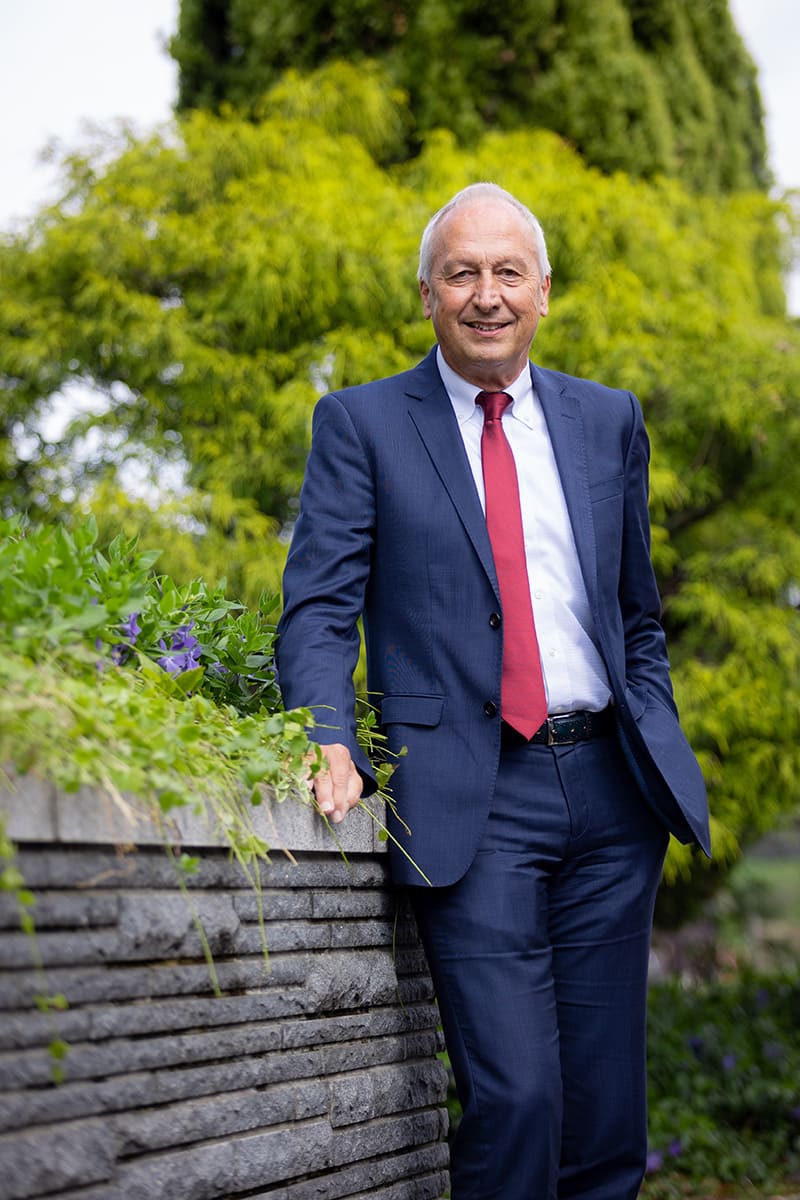
May 20, 2022
New technologies, pure science made in paradise
German superstar Peter Gruss leads ‘extraordinary’ OIST in Okinawa
- Name: Peter Gruss
- Title: President & CEO, Okinawa Institute of Science and Technology
- URL: https://www.oist.jp/
- Hometown: Hessen, Germany
- Years in Japan: 5
On the main island of Okinawa, a little-known graduate university has quietly become one of Japan’s most innovative institutions. To find it, fly south until you get to paradise, then hook a left. You will arrive at a small cluster of modern buildings looking over the sea. Walk the grounds, and you will notice many of the professors are young, and more than half are non-Japanese. Ask a few people what they are working on, and over the sound of the waves you will hear the future being read to you, one discovery at a time. The Okinawa Institute of Science and Technology (OIST) isn’t what most people expect. That is exactly what its president and CEO, Peter Gruss, was looking for before he joined.
Gruss is a tall, blue-eyed German gentleman, the kind of man who skied throughout his 60s and still whistles up mountain trails. He came to OIST five years ago, after a superstar career in research and administration, where he became Germany’s most prominent and celebrated science administrator. Imagine if an ambitious Japanese movie studio convinced a semi-retired Steven Spielberg to be their CEO; that is what his arrival must have felt like at OIST.
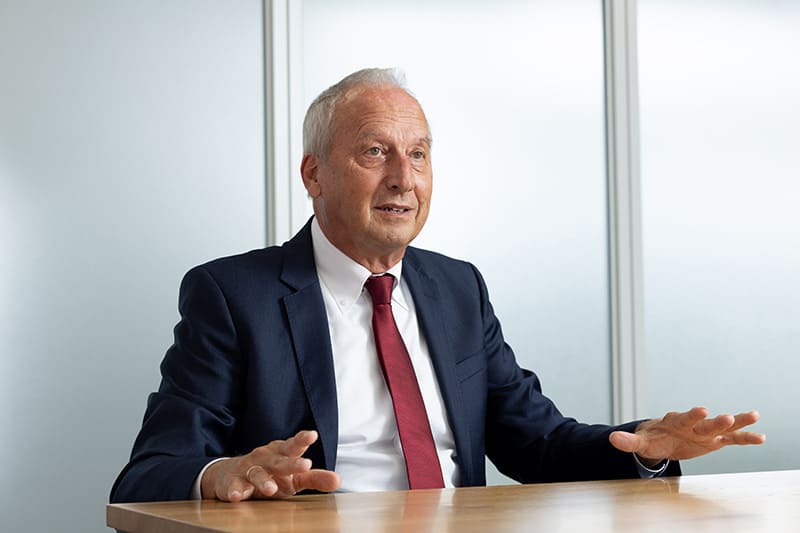
Gruss was attracted to OIST by three rare factors: ample government funding, independent oversight and a commitment to cutting-edge research. “What matters to the top minds is working near other great minds being supported by what I call ‘high-trust funding.’ OIST has that,” he said. This is the research funding model that Gruss had championed at the Max Planck Society, which he ran for 12 years. “It is the opposite of grant-based funding. Instead, candidates are evaluated based on what they have done so far. It allows us to identify great scientists, and help them do the extraordinary.”
At OIST, extraordinary results have followed, and Gruss is exuberant about his new home. “It is a wonderful, young university that has grown in recognition in the past 10 years. OIST is now the No. 1 research university in Japan, and one of the top three in the world.” He qualifies the statement in simple terms. “Of course, the overall impact of places such as Tokyo University or Caltech are much higher. But think of our tiny size. Normalize the publications by the number of professors, and you’ll see the difference.” Gruss was talking about scientific publication, and the citations each publication receives; ground-breaking papers are frequently cited by peers, while unexciting papers are simply ignored. “If you want to evaluate the quality of a scientist, you can [evaluate] the impact of their publications by the number of citations. By this measurement, the overall Japanese grant-funding is the least efficient among the G20. Sadly, it means that this government funds mediocre research.” Gruss tutted, and shook his head. “OIST is quality over quantity. That is the key for success!”
As the leader of OIST, Gruss lobbies for change at the highest levels of government and corporate leadership. His first message: Publicly funded research is not optional, but necessary. “Look at the numbers. The U.S. commits about 0.9% of its GDP to research (including the government sources and private foundations), Germany 1%. Japan pays only 0.6%!” His second message: This research is not a subsidy. It is an investment, one that must be carefully made, and in younger scientists. “In Germany, we reward smart young researchers with high-trust, five-year research plans,” he said. “These are researchers who are around 35 years old, and their title is often ‘assistant professor.’ Mind you, they are doing their own research! But in many Japanese universities, the assistant professor… is actually the assistant to the professor!” Gruss threw his hands in the air with frustration. “When did many Nobel laureates do their Nobel Prize experiments? In many cases they were under 42. The brightest young Japanese scientists are losing this opportunity!”
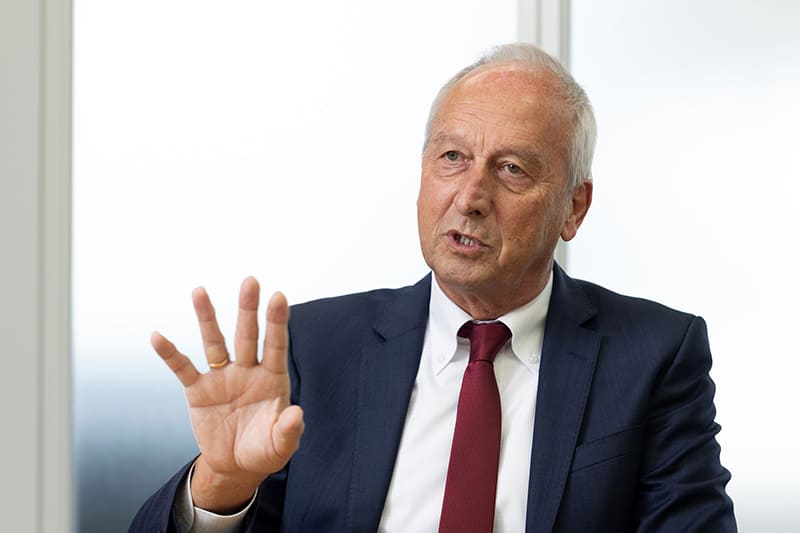
While he is a passionate advocate for change in Japan, his real eloquence is reserved for the research done at OIST. The institute does enable tech transfer, but takes pride in doing more theoretical work, where researchers solve problems that are only just emerging, or find new uses for barely understood technologies.
He touched on computing: “We call it ‘post-quantum cryptography.’ A quantum computer will be able to break any currently available mathematical code. So if we don’t understand how to deal with this now, before the first quantum computer is available, then we will be in a very bad place.” Later he shifted to genetics. “It is the combination of big data and AI that will change everything. AI will be able to take the entire population’s genetics — down to the molecules — and compare them to the health outcomes of each person. This will finally give us an understanding of polygenic traits — traits controlled by more than one gene, and by more than one chemical affecting those genes. This is only 10 years away.” And don’t get Gruss started on stem cells, which fall under his own scientific expertise. “For some time now, scientists have been able to grow organoids — very simple brains, or any organs — from the cells of any part of a human body. Now these are getting more complex! Soon you will be able to test drugs against entire human structures!” With Gruss at the helm, OIST is exploring all of these areas and more.
It was the end of our meeting, and Gruss had barely touched on the many discoveries being made in Okinawa under his guidance. “No other generation has lived at a time like this, with the amount of dramatic change that is coming. There will be upheaval in every way that makes us human, from anti-aging to CRISPR therapies to quantum computing.” Looking back, it could have been a chilling statement. But coming from Peter Gruss, it sounded downright cheerful.

